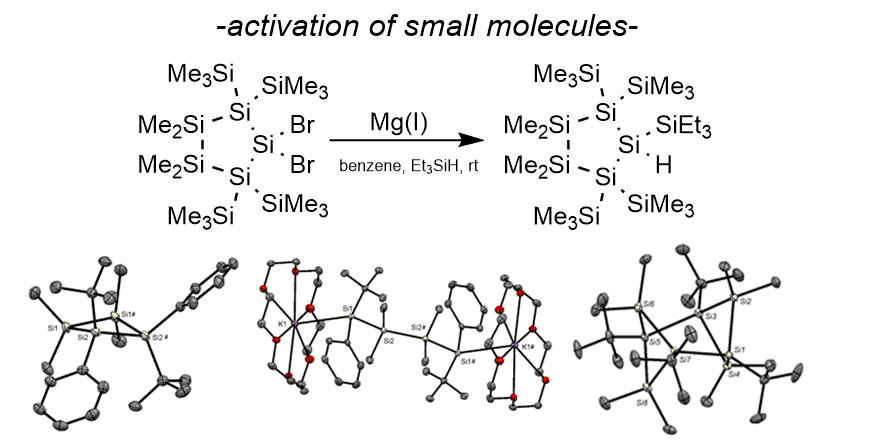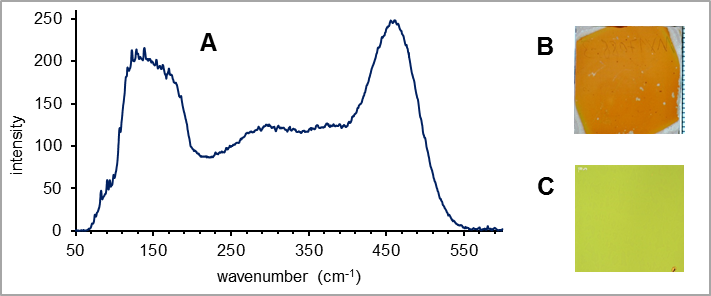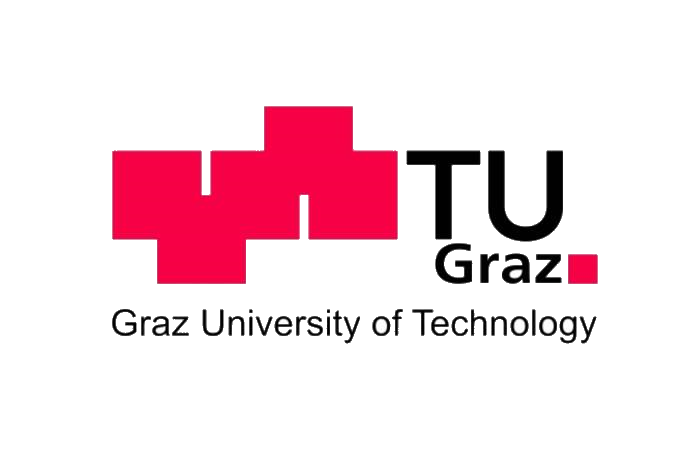FWF-PROJECTS
Heavier Group 14 β-Diketonates as New Ligands
FWF stand-alone project with the title: "Heavier Group 14 β-Diketonates as New Ligands". The proposal has three principal aims. The first concentrates on the synthesis of acyl group 14 compounds, which serve as precursors for the β-diketonates. The second aim focuses on the preparation of new HG 14 β-diketonate metal complexes. Here we want to address fundamental studies, which include the spectroscopic investigation of the bonding situation and the stability of these new derivatives. The third aim is directed towards the development of applications for these complexes. Here, we will focus on the investigation of the catalytic activity of our new compounds. The replacement of carbon by its more oxophilic heavier homologous and the implementation of new functionalities in the backbone of these ligands could show a directing effect for substrates, which is not present for the carbon based β-diketonates. Moreover, we also want to address the possibility of nanoparticle synthesis and the design of new metal organic frameworks (MOFs).

Synthesis of Homocyclic Silylenes as Metal-Free Catalysts
FWF-Schrö dinger Fellowship with the title: "Synthesis of Homocyclic Silylenes as Metal-Free Catalysts". The investigation of metal-free catalytic processes is of significant interest in contemporary main group chemistry. As a result of the high abundance and low toxicity of silicon, silylenes (Si(II)) are currently closely investigated as possible catalysts. For this purpose, a general synthetic strategy towards the synthesis of homocyclic silylenes was investigated. During this project two publication in high ranking peer-reviewed journals were published which demonstrated the activation of selected examples of small molecules

Aldol Reaction of the Heavier Carbon Homologues
FWF stand-alone project with the title: "Aldol Reaction of the Heavier Carbon Homologues". This application targets to study and explore the aldol reaction of heavier homologues of carbon. The classical carbon based aldol reaction is one of the most important biosynthetic tools for the evolution of life on earth. The generality associated with this process are among the most extensively investigated of all synthetic methods. For the heavier homologues of carbon, however, such bond-forming reactions were unknown until a recent study in our laboratories demonstrated that this reaction type is indeed possible. This new synthetic method can be seen as an interesting and powerful alternative to standard coupling techniques. Beyond its obvious utility for the synthesis of non-natural compounds, this aldol reaction can be both an engine and a proving ground for new methodological advances.

Liquid Phase Deposition of Silicon Heterostructures
FWF stand-alone project with the title: "Liquid Phase Deposition of Silicon Heterostructures". Chemical vapor deposition (CVD) is the state-of-the-art process for making polycrystalline Si films in microelectronic industry. As an alternative, solution processing of silicon based devices has attracted considerable attention owing to the possibility of low-cost fabrication by printing processes. Recent studies in our laboratories and by others have demonstrated the principal feasibility of the liquid phase deposition (LPD) and processing of silicon thin films of satisfactory quality. This application targets to study and explore the liquid phase deposition of hydrosilane precursors, which contain one or more heteroatoms (single source precursors). We aspire to explore this chemistry including possible applications.

DEPARTMENT OF INORGANIC CHEMISTRY | Technical University Graz

